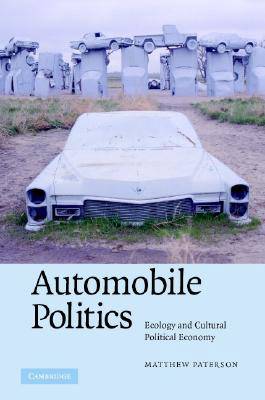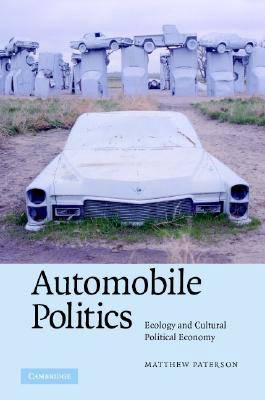
Door een staking bij bpost kan je online bestelling op dit moment iets langer onderweg zijn dan voorzien. Dringend iets nodig? Onze winkels ontvangen jou met open armen!
- Afhalen na 1 uur in een winkel met voorraad
- Gratis thuislevering in België vanaf € 30
- Ruim aanbod met 7 miljoen producten
Door een staking bij bpost kan je online bestelling op dit moment iets langer onderweg zijn dan voorzien. Dringend iets nodig? Onze winkels ontvangen jou met open armen!
- Afhalen na 1 uur in een winkel met voorraad
- Gratis thuislevering in België vanaf € 30
- Ruim aanbod met 7 miljoen producten
Zoeken
€ 181,95
+ 363 punten
Uitvoering
Omschrijving
The car, and the range of social and political institutions which sustain its dominance, play an important role in many of the environmental problems faced by contemporary society. But in order to understand the possibilities for moving towards sustainability and 'greening cars', it is first necessary to understand the political forces that have made cars so dominant. This book identifies these forces as a combination of political economy and cultural politics. From the early twentieth century, the car became central to the organization of capitalism and deeply embedded in individual identities, providing people with a source of value and meaning but in a way which was broadly consistent with social imperatives for mobility. Projects for sustainability to reduce the environmental impacts of cars are therefore constrained by these forces but must deal with them in order to shape and achieve their goals.
Specificaties
Betrokkenen
- Auteur(s):
- Uitgeverij:
Inhoud
- Aantal bladzijden:
- 284
- Taal:
- Engels
Eigenschappen
- Productcode (EAN):
- 9780521870801
- Verschijningsdatum:
- 6/08/2007
- Uitvoering:
- Hardcover
- Formaat:
- Genaaid
- Afmetingen:
- 164 mm x 227 mm
- Gewicht:
- 571 g

Alleen bij Standaard Boekhandel
+ 363 punten op je klantenkaart van Standaard Boekhandel
Beoordelingen
We publiceren alleen reviews die voldoen aan de voorwaarden voor reviews. Bekijk onze voorwaarden voor reviews.











